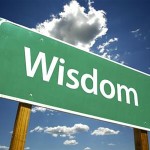The first rule for improving personal efficiency is:
Act on an item the first time you read or touch it.
I’m not talking about those things that you can’t do now or even those things you shouldn’t do now. I’m talking about all the things that you could and should do, but you don’t. I’m talking about routine paperwork and e-mail of the sort you encounter every day. Take care of these things the first time you touch or read them, and you’ll save yourself a lot of time in the long run.
Call Mary. Respond to that e-mail message immediately. Answer the customer’s letter of complaint. Act on that voice mail as you listen. Talk to the boss about the problem. Do It Now. You’ll be amazed at how little time it actually takes and amazed at how good you feel when it’s done.
If you’re not going to act on your paperwork, don’t waste time looking at it. If you’re not going to return your voice mail messages, don’t waste time listening to them. If you’re not going to respond to your e-mail messages, don’t waste time looking at them. Don’t clog up your day with things you aren’t going to do. Instead, move on to what you are going to do, and Do It Now.
via The Personal Efficiency Program: How to Get Organized to Do More Work in Less Time.
Before there was Getting Things Done there was The Personal Efficiency Program. What I like about that book is that, at the center of all to the promises of new techniques and knowledge sat a fundamental point–a point about virtue.
Don’t wast time; work!
It seems to me that the value of working as a virtue is slighted all the time. I hear companies criticized because “they don’t do anything that no one else could do.” It seems the key to prosperity is having a lock (intellectual “property” monopoly perhaps) on some kind of supply. Actually managing to do something everyone else can do better than they do it doesn’t seem to be an option.
Likewise, we keep hearing about how people succeed by being “brilliant” or “innovative.” But as far as I can tell, mostly they are lucky. Bill Gates and Steve Jobs could have been just as brilliant in many times and places in human history and they would have been no more well known than the many other brilliant people that we have never heard of.
(Let that last point sink in. Every time you hear about how x leads to success, ask yourself how the researcher has found a wide sample of failures and managed to determine that x was not present in those endeavors. Finding what all success stories have in common might tell you something about making sure that you don’t frustrate the success you might otherwise achieve, but it doesn’t give you any reason to claim that x creates success because, for all you know, many failures have shared the same trait. In the world, and even in the United States, I think it is possible to find one or more examples of just about anything bringing about success. [This is something aspiring church planters might do well to meditate upon]).
A slack hand causes poverty; but the hand of the diligent makes rich.
I realize there there are plenty of visible multi-millionaires who think they found a shortcut. But people win the lottery too. Doesn’t make it a strategy. In the meantime, how is dumping money into lawyers and courts a productive allocation of resources? For example, from the summer of 2007, NYT:
The video rental chain Blockbuster said on Wednesday that it had settled a patent dispute with its rival Netflixthat challenged Blockbuster’s entry into online DVD rental. Blockbuster also signaled that the new business was taking a toll on its finances.
Although terms of the settlement were not disclosed, shares in Netflix jumped $1.26, almost 6.5 percent, to $20.78, while Blockbuster slipped 2 cents, to $4.20.
Blockbuster also disclosed in a securities filing on Wednesday that it planned to seek an amendment to its Aug. 20, 2004, credit agreement that would lower earnings requirements.
The company said in the filing that it planned to modify its popular Total Access plan before the end of the year to “strike the appropriate balance between continued subscriber growth and enhanced profitability.”
Now, I confess to having a weird preference to Netflix, but the idea that selling dvds online through mail via monthly subscription (this was about actual dvds, not online streaming) can be patented is a really stupid idea.
There was a time when the past was a gift and people were invited to do their best with it. Now, this form of stewardship is otiose; we’re supposed to go into debt to buy access to exclusive secrets in the trust that they will make us effortlessly rich. (It is God’s joke on the modern world that, when future historians analyze how we economically strangled ourselves to death, they will realize the fingers around our throat belonged to the gloved hands of a cartoon mouse).
Anyway, I think Solomon would tell you to worry far less about access to a monopoly and simply work hard. He would also tell you to read David Allen for lots of good advice but don’t believe the subtitle. There is no such thing as “stress-free productivity.”
